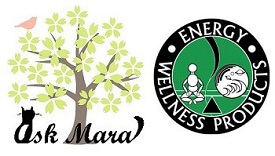
Journaling has been around for ages. In fact, many of the ancient texts we have were a version of someone’s journal who had the discipline and desire to record their thoughts and feelings as well as to keep a record of current events, family culture and various situations they encountered.
But did you realize the benefits of journaling go beyond keeping a record? In fact, there is a lot of research pointing to evidence that suggests there are many health benefits connected to regular journaling. Let’s talk about a few of them.
Stress Benefits of Journaling
First and foremost, journaling is an effective stress and emotional management tool. We all know how harmful stress can be to a body. When cortisol and adrenaline levels are at heightened levels for sustained lengths of time it can wreak havoc on a body. Of course, these hormones are beneficial in short bursts when we need to respond to a flight-or-fight situation, but being in the system too long can put you at risk for anxiety, depression, weight problems and heart disease.
Journaling is a great stress management tool. By taking time to consider and reflect on situations that might be causing stress in your life, you’re more likely to find solutions to help manage those situations healthily. Journaling also allows you to sometimes leave your problems between the pages instead of carrying that emotional weight throughout each day. Our minds are amazing tools! When presented with a problem more analytically, it can often get to work to start coming up with solutions.
Keep in mind as well that when we are under stress for long periods our immune system is at a greater risk of not being as robust as it could be. By managing our emotions and stress we are in turn providing healthy support to our immune system.
Sharpen your Mind
Another great benefit to journaling is that it sharpens your brain function and can help improve your working memory. This, in turn, boosts your overall cognitive function. It has also been shown to help process trauma and to help with emotional management.
Not sure where to start? The great news is it doesn’t take much! Find any empty notebook and a favorite writing tool and get started! If it takes time to figure out what to write, there are plenty of writing prompts available on the internet. You can also spend time recording gratitude or listing your top-5 things from the day. Perhaps you want to write about a problem that is plaguing you and ideas you have for solutions. No matter how you go about it, the best way to get started is just to start! Shoot for 10 -15 minutes of writing daily. Happy journaling!
